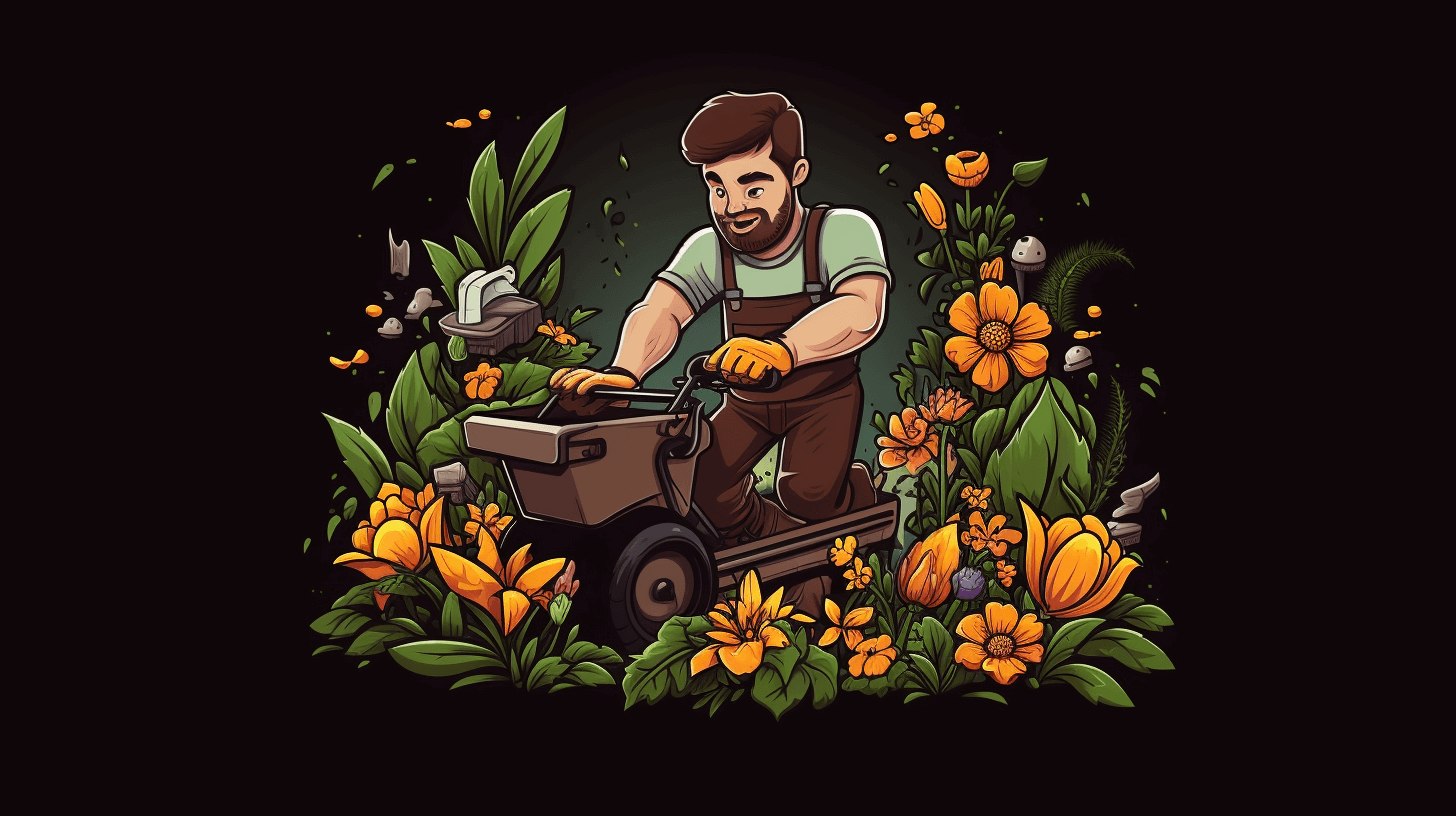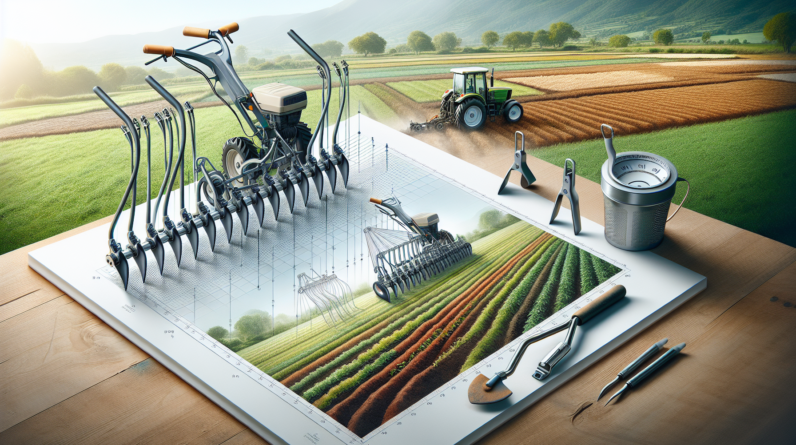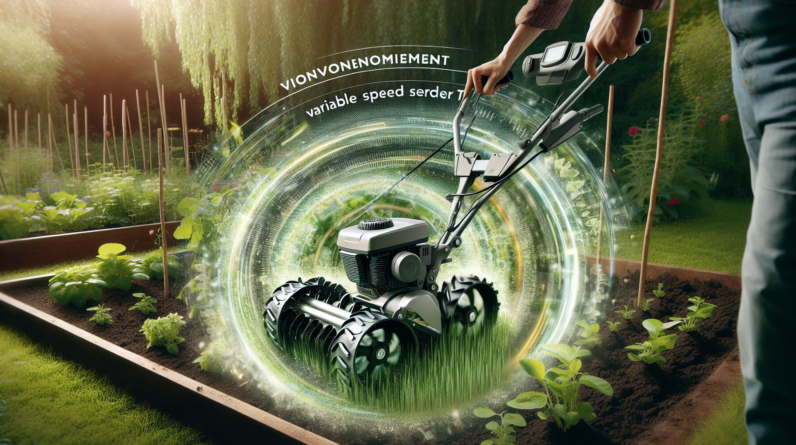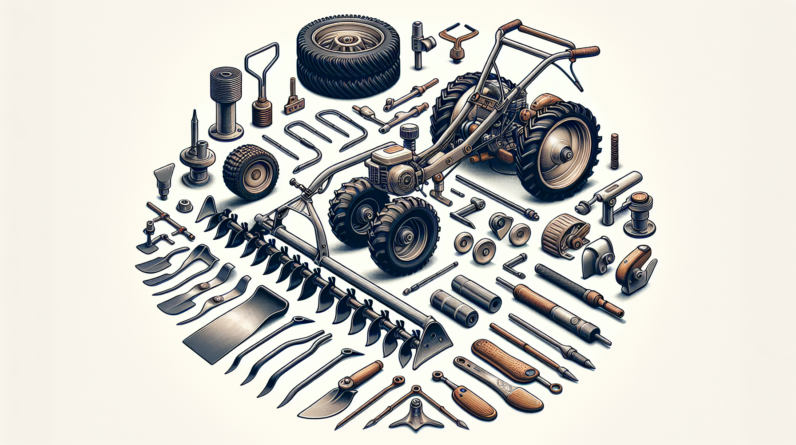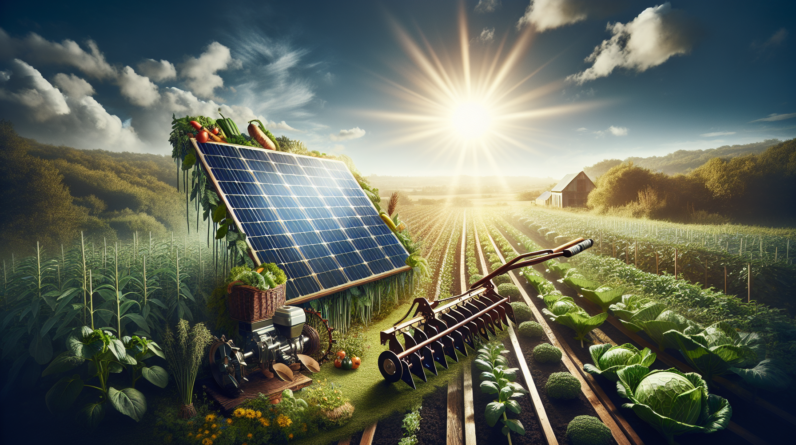
If you’ve ever dreamed of having a lush and bountiful garden without breaking a sweat, then say hello to the future – solar-powered garden tillers! These innovative machines harness the power of the sun to effortlessly till your soil, making the back-breaking manual labor a thing of the past. With their sleek design and eco-friendly approach, these garden tillers are not only efficient but also a sustainable choice for your gardening needs. Say goodbye to sore muscles and hello to a thriving garden with the help of solar-powered garden tillers!
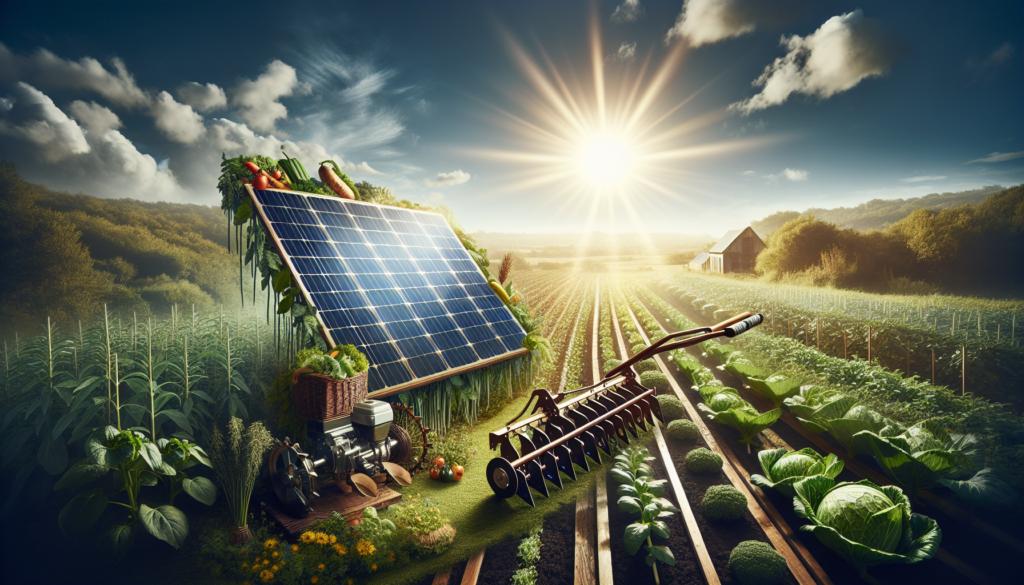
Overview
What are solar-powered garden tillers?
Solar-powered garden tillers, also known as solar tillers or solar cultivators, are gardening tools that use solar energy to power their operations. Unlike traditional garden tillers that rely on gasoline or electricity, solar-powered tillers harness sunlight through solar panels and convert it into usable energy. They are designed to break up and loosen the soil, making it easier to plant seeds and maintain a healthy garden.
Advantages of solar-powered garden tillers
There are several advantages to using solar-powered garden tillers:
Environmentally friendly: Solar tillers do not emit any harmful fumes or greenhouse gases as they operate solely on renewable solar energy. They help reduce carbon emissions and promote a greener and more sustainable gardening practice.
Cost-effective: Unlike gasoline tillers that require regular refueling or electric tillers that consume electricity, solar tillers have no ongoing fuel or electricity costs. Once you invest in a solar tiller, you can enjoy the benefits of free energy from the sun.
Low maintenance: Solar tillers have fewer moving parts compared to traditional tillers, resulting in reduced maintenance requirements. They do not have engines that require oil changes or spark plugs that need replacement. This makes them easier to maintain and less prone to breakdowns.
Choosing the Right Solar-Powered Garden Tiller
Factors to consider
When choosing a solar-powered garden tiller, there are a few important factors to consider:
Garden size: Consider the size of your garden as it will determine the size and power requirements of the tiller. Larger gardens may require more powerful tillers to effectively till the soil.
Soil conditions: Different tillers may perform better in certain soil types or conditions. Consider the composition and texture of your garden soil to ensure that the tiller you choose can handle it efficiently.
Tiller features: Look for features such as adjustable tilling depth, ease of maneuverability, and additional attachments like weeders or seed planters that can enhance the functionality of the tiller.
Comparing different brands and models
Research and compare various brands and models of solar-powered garden tillers to find the one that suits your needs. Read customer reviews, check for warranties, and consider the reputation and reliability of the manufacturer. Look for tillers that have a track record of positive user experiences and good performance in real-world gardening situations.
Budget considerations
Determine your budget for a solar-powered garden tiller and find options that fit within that range. While solar tillers may have a higher upfront cost compared to traditional tillers, consider the long-term savings on fuel or electricity expenses. Look for models that offer a good balance of price, features, and performance.
Benefits of Solar-Powered Garden Tillers
Environmentally friendly
One of the key benefits of solar-powered garden tillers is their environmentally friendly nature. By using renewable solar energy instead of fossil fuels, they significantly reduce carbon and greenhouse gas emissions. This helps to combat climate change and promotes a more sustainable gardening practice.
Cost-effective
Solar-powered garden tillers can provide significant cost savings in the long run. While they may require a higher initial investment, there are no ongoing fuel or electricity costs associated with their operation. Once you have purchased a solar tiller, you can enjoy free energy from the sun, reducing your gardening expenses.
Low maintenance
Solar tillers have fewer moving parts compared to traditional tillers, resulting in lower maintenance requirements. They do not have complex engines that require regular maintenance or fuel filters that need cleaning or replacement. This makes them easier to operate and less prone to mechanical issues or breakdowns.
Getting Started with Solar-Powered Garden Tillers
Determining your garden’s size and needs
Before using a solar-powered garden tiller, assess the size and specific needs of your garden. Measure the area you plan to till and consider any challenges such as rocky or compacted soil. This will help you choose the appropriate size and power of the tiller for optimal tilling performance.
Preparing your garden for using a solar-powered tiller
Before operating your solar-powered tiller, prepare your garden by removing any large rocks, debris, or weeds from the area. This will ensure a smooth tilling process and prevent damage to the tiller blades. It is also recommended to water the soil adequately to ease the tilling process.
Operating and maintaining your tiller
To operate a solar-powered garden tiller, ensure that it is properly charged by placing it in a sunny location or under direct sunlight. Follow the manufacturer’s instructions for starting and operating the tiller. After each use, clean the tiller blades and remove any excess dirt or debris to prevent rust and maintain optimal performance. Store the tiller in a dry and covered area when not in use.
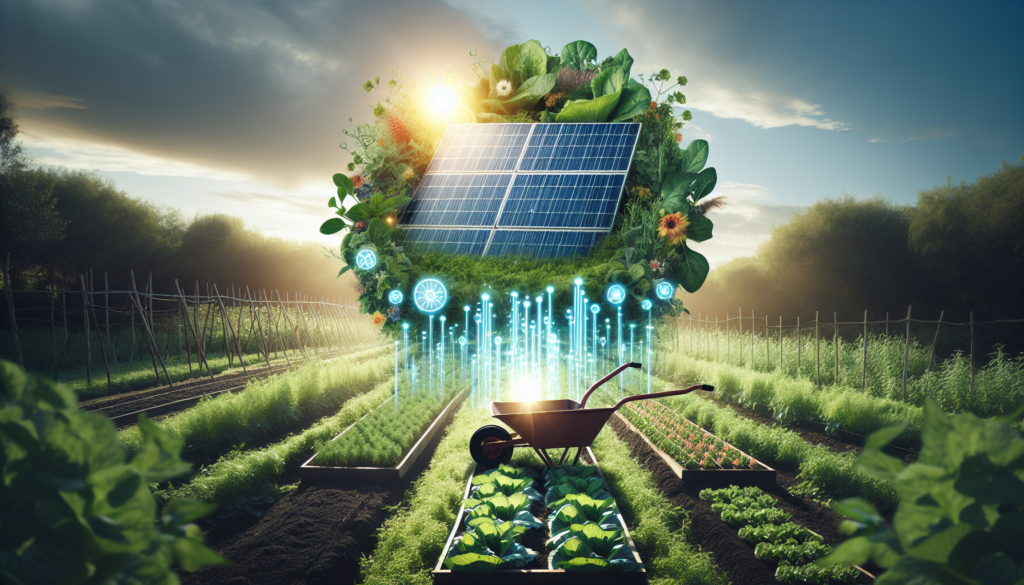
Common Troubleshooting Tips
Dealing with insufficient sunlight
If you encounter insufficient sunlight for your solar-powered garden tiller, consider adjusting the location of the tiller to a spot with better sun exposure. You may also need to wait for sunnier days to ensure a full charge. Some models have the option to add external batteries or backup power sources to overcome limited sunlight conditions.
Handling soil types and conditions
Different soil types and conditions may require adjustments to the tilling depth and speed of your solar-powered tiller. If you encounter hard or compacted soil, consider wetting the area before tilling to soften it. You can also experiment with different tilling techniques and speeds to find the most effective approach for your specific soil type.
Addressing mechanical issues
Solar-powered garden tillers have fewer mechanical components compared to traditional tillers, reducing the likelihood of mechanical issues. However, if you notice any abnormalities in the tiller’s performance or encounter mechanical problems, consult the manufacturer’s manual or contact their customer support for troubleshooting assistance.
Other Solar-Powered Tools for Gardening
Solar-powered irrigation systems
In addition to solar-powered garden tillers, there are other solar-powered tools available for gardening. Solar-powered irrigation systems utilize solar energy to power water pumps that deliver water to the garden. These systems can help automate watering and ensure consistent moisture levels in the soil.
Solar-powered yard lights
Solar-powered yard lights are an excellent addition to any garden. These lights use solar panels to charge during the day and provide illumination in the evening. They are energy-efficient, environmentally friendly, and can enhance the aesthetics and safety of your garden.
Solar-powered composters
Solar-powered composters use solar energy to accelerate the decomposition process of organic waste, turning it into nutrient-rich compost. By harnessing the power of the sun, these composters provide a convenient and eco-friendly way to recycle kitchen scraps and yard waste.
Case Studies: Successful Solar-Powered Garden Tillers
Testimonials from gardeners
Many gardeners have reported positive experiences with solar-powered garden tillers. They appreciate the ease of use, reduced maintenance, and the environmentally friendly aspect of these tools. Testimonials from gardeners highlight the effectiveness of solar-powered tillers in breaking up compacted soil and preparing the ground for planting with minimal effort.
Comparing results with traditional garden tillers
In comparison to traditional garden tillers, solar-powered garden tillers have shown comparable performance in terms of soil tilling and garden preparation. Gardeners have reported successful cultivation of various crops using solar tillers, demonstrating their capability to handle a wide range of gardening tasks.
Real-life examples of solar-powered tillers in action
Various real-life examples showcase the effectiveness of solar-powered garden tillers. From small backyard gardens to larger agricultural plots, these tillers have proven to be reliable and efficient, delivering the necessary power and performance to meet gardeners’ needs. These examples demonstrate the versatility and practicality of solar tillers in different gardening scenarios.
Future Developments and Trends in Solar-Powered Garden Tillers
Improvements in efficiency and power storage
Future developments in solar-powered garden tillers are expected to focus on improving their overall efficiency and power storage capabilities. Advancements in solar panel technology and battery systems will allow for longer operating times and increased power output, maximizing the tiller’s performance.
Integrating advanced technology in tiller design
As technology continues to advance, solar-powered garden tillers may incorporate features such as smart controls, GPS tracking, and sensor-based systems. These advancements can enhance precision and ease of use, making the tilling process more efficient and accurate.
Growing popularity and market demand
With the increasing emphasis on sustainability and eco-friendly practices, the demand for solar-powered garden tillers is expected to grow. As more gardeners recognize the benefits of these tools, manufacturers are likely to invest in research and development to meet the growing market demand.
Conclusion
Solar-powered garden tillers offer a range of advantages, from their environmentally friendly operation to their cost-effectiveness and low maintenance requirements. By harnessing the power of the sun, these tillers provide a sustainable and efficient solution for tilling and cultivating garden soil. When choosing a solar tiller, consider factors such as garden size, soil conditions, and budget to find the right model. With proper preparation and maintenance, your solar-powered garden tiller will contribute to a successful and enjoyable gardening experience while minimizing your carbon footprint. Embrace the future of gardening and start reaping the benefits of solar power in your garden today.
